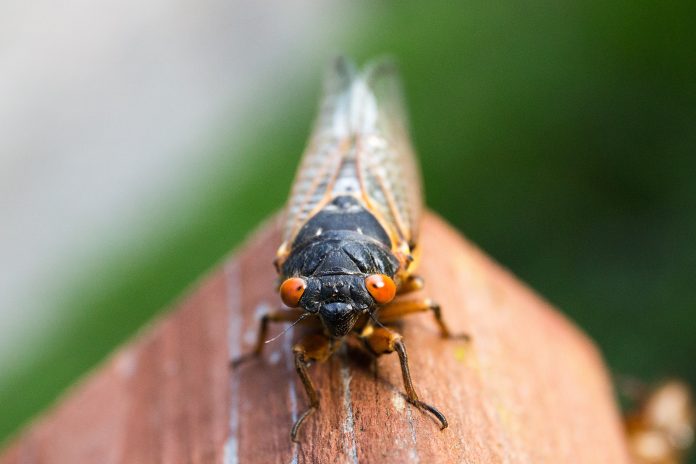With the emergence of Brood X Cicadas underway in Bucks County and surrounding counties, state officials are encouraging residents to keep their hands off insecticides as these once-every-seventeen-year bugs make their appearance. While large and loud, these rare insects are not harmful and will not be around for long.
“The risk of harming beneficial pollinators or other bugs, or pets or other wildlife that may eat cicadas, to wipe out a temporary annoyance is not worth it,” said Agriculture Secretary Russell Redding. “Save the insecticides for the truly bad bugs, try to enjoy the phenomenon and let Brood X brood in PA for a few short-lived weeks.”
These insects do not bite or carry diseases and will only be around for a few weeks. Because of this, insecticides are not recommended to control cicadas as the risk outweighs the benefit. Insecticides can harm pets or other wildlife that eat cicadas, and run off into local waterways and pollute streams and rivers.
“Cicadas are a native species in northeast America and, like most native insects, plants, animals and fish, play their role in our environment,” said Department of Environmental Protection Patrick McDonnell. “They’re here for such a short time, it’s better to take the long view and appreciate the food source they provide to wildlife, as well as the soil aeration they perform and the source of nitrogen their carcasses supply to trees.”
While cicadas are generally good for the environment, the females can harm young trees as they cut slits into twigs and woody stems when they lay eggs. To avoid damage, it’s recommended to postpone any new plantings until after adult cicadas have died. Property owners with young trees less than four years old are advised to cover them with mesh netting to avoid damage. The best time to cover these young trees is when you hear the male cicadas singing, which is approximately one week prior to females laying eggs.
“Periodical cicadas are a natural and vital component of our forest ecosystem,” said Department of Conservation and Natural Resources Secretary Cindy Adams Dunn. “Pennsylvania forests seem to take the impacts of cicadas in stride, having evolved with them for millennia, and the insects are an important food source for forest dwellers like birds and mammals.”
For more information, visit extension.psu.edu/periodical-cicada


